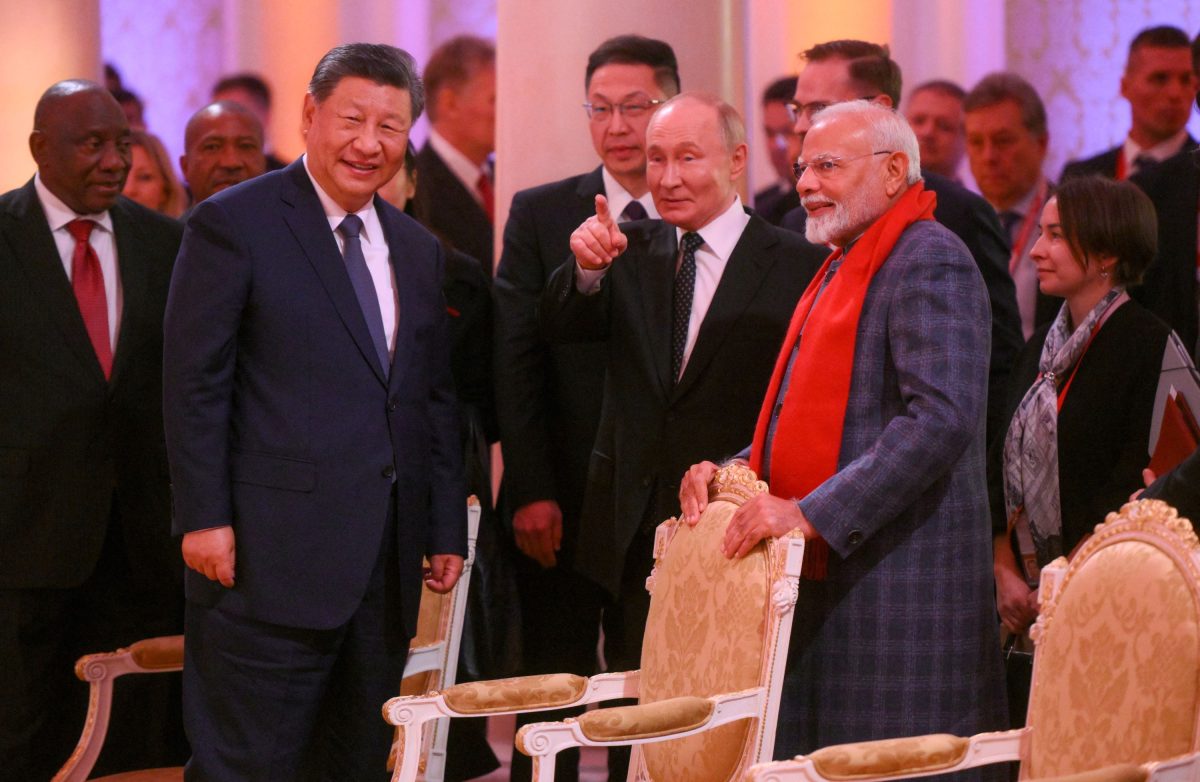NEW DELHI/BEIJING, (Reuters) – Indian Prime Minister Narendra Modi and Chinese President Xi Jinping held their first formal talks in five years today, signalling that ties between the Asian giants damaged by a deadly military clash in 2020 had begun to recover.
The two leaders met on the sidelines of the BRICS summit in the Russian city of Kazan, the Indian government and Chinese state media said, two days after New Delhi announced that it had reached a deal with Beijing to resolve the four-year military stand-off on their disputed Himalayan frontier.
Relations between the world’s two most populous nations – both nuclear powers – have been strained since a clash between their troops on the largely undemarcated frontier in the western Himalayas of Ladakh left 20 Indian and four Chinese soldiers dead in 2020.
The neighbours increased their military presence along the icy frontier since, adding tens of thousands of troops and weapons over the last four years.
Modi and Xi had not held formal bilateral talks since although they both participated in multilateral events. Their last summit talks were held in Oct. 2019 in the southern Indian town of Mamallapuram.
The two spoke briefly on the sidelines of the G20 summit in Bali in Nov. 2022 and exchanged courtesies. They spoke again on the sidelines of the BRICS summit in Johannesburg in Aug. 2023 but ended up releasing different versions of the conversation, indicating the two sides didn’t see eye to eye.
Xi skipped the G20 summit hosted by New Delhi the following month, a decision seen as another setback to their relations.
Diplomatic efforts gained momentum in recent months after foreign ministers of the two countries met in July and agreed to step up talks to ease the border tensions.
As India had made improving the wider political and damaged business ties contingent upon finding a solution to the border stand-off, Wednesday’s talks between the two leaders is expected to result in potentially more Chinese investment into India.
New Delhi had increased the scrutiny of investments coming from China, blocked direct flights between the two countries and had practically barred issuing any visas to Chinese nationals since the Ladakh clashes.
Neither New Delhi nor Beijing – which confirmed the border pact on Tuesday – has shared details of how the stand-off will be resolved under the deal agreed to this week.
An Indian military source told Reuters that the pact will allow both sides to patrol contested points on the frontier according to an agreed schedule to prevent confrontations.






